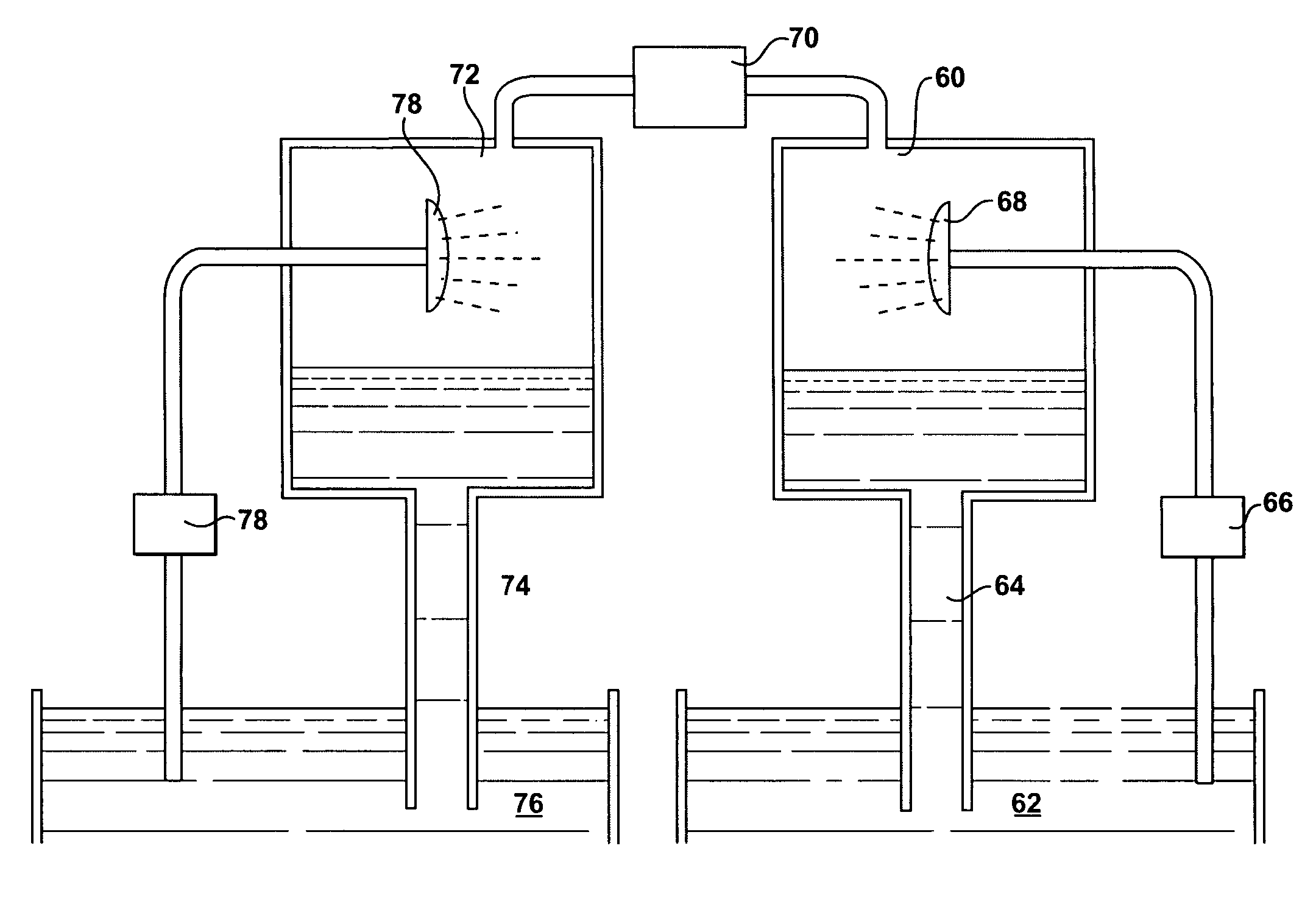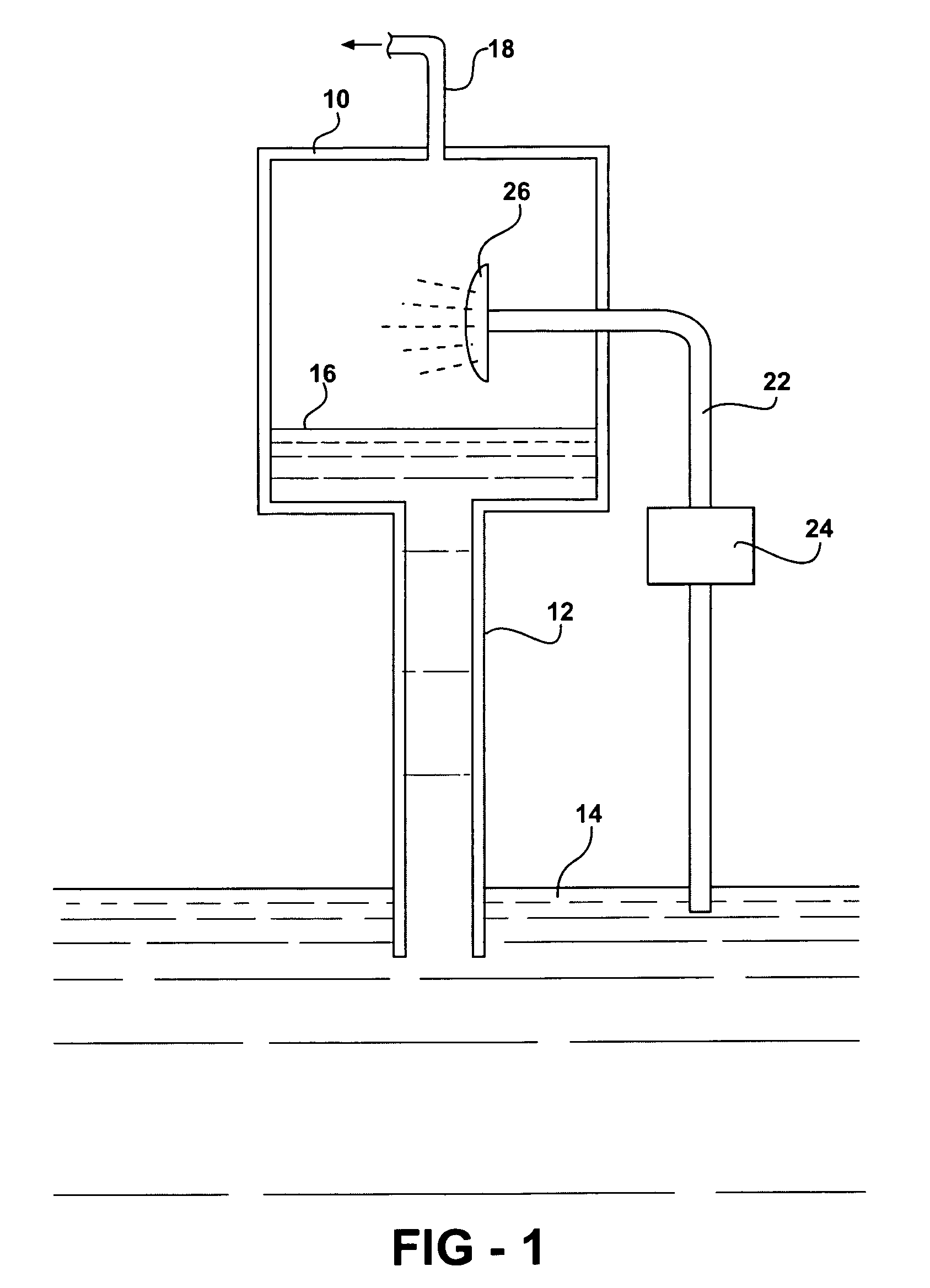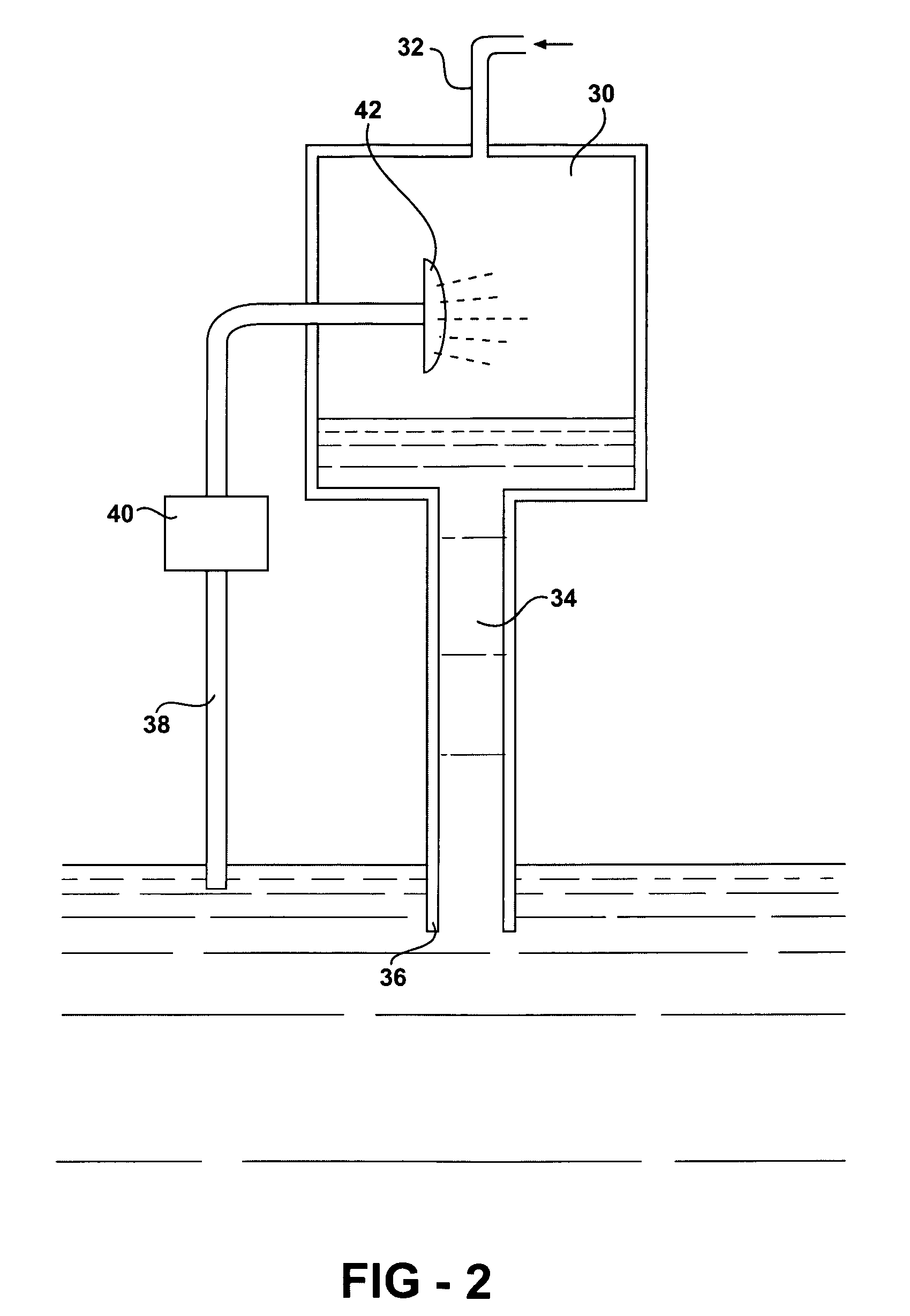Low energy vacuum distillation method and apparatus
a vacuum distillation and low energy technology, applied in vacuum distillation separation, vessel construction, separation processes, etc., can solve the problems of limited commercial application, high energy requirements for this system, and limited use of specialized situations, so as to achieve maintenance free and low initial cost
- Summary
- Abstract
- Description
- Claims
- Application Information
AI Technical Summary
Benefits of technology
Problems solved by technology
Method used
Image
Examples
Embodiment Construction
[0016]A preferred embodiment of the invention is schematically illustrated in FIG. 1. The system employs a chamber 10, which is generally sealed and has its lower end connected to an exit pipe 12 which in turn has its lower end disposed in a body of water to be purified 14, preferably seawater or brine, hereinafter termed “source water”. The height of the water column in pipe 12 is such that the surface 16 of the water level within the chamber 10 is at the maximum height that can be supported by the atmospheric pressure on the lower end of the conduit 12 less the pressure within the chamber 10, typically approximately 10 meters. As a result, the volume in the chamber 10 above the water surface 16 is substantially evacuated to a subatmospheric pressure (a “Torricelli vacuum”) and filled with water vapor at a vapor pressure corresponding to the temperature of the water in the chamber 10. The water vapor drawn out of the chamber 10 through conduit 18 represents the distilled output of ...
PUM
| Property | Measurement | Unit |
|---|---|---|
| height | aaaaa | aaaaa |
| temperature | aaaaa | aaaaa |
| pressure | aaaaa | aaaaa |
Abstract
Description
Claims
Application Information
 Login to View More
Login to View More - R&D
- Intellectual Property
- Life Sciences
- Materials
- Tech Scout
- Unparalleled Data Quality
- Higher Quality Content
- 60% Fewer Hallucinations
Browse by: Latest US Patents, China's latest patents, Technical Efficacy Thesaurus, Application Domain, Technology Topic, Popular Technical Reports.
© 2025 PatSnap. All rights reserved.Legal|Privacy policy|Modern Slavery Act Transparency Statement|Sitemap|About US| Contact US: help@patsnap.com



